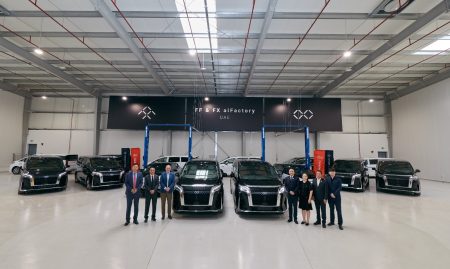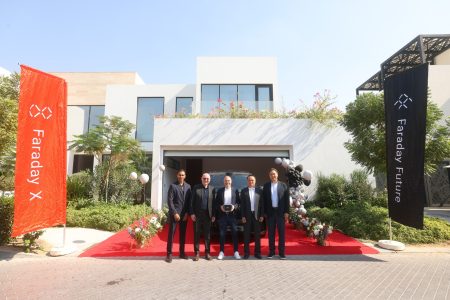Summarize this content to 2000 words in 6 paragraphs in Arabic Ten years ago, Baroness Beeban Kidron had a clandestine cup of tea with a tech executive, whom she refers to as a “Deep Throat”. “Everybody in Silicon Valley knows that they’re hurting kids,” the insider explained. “They know that people are coming for them . . . but at the moment, there’s money to be made. In Silicon Valley, it’s routinely referred to as the ‘lost generation’.” It galvanised Kidron’s efforts to curb Big Tech. “I was angered, outraged, insulted. And whenever I get tired of doing this, I think, ‘Lost generation’?” Gazing intently from round tortoise-shell glasses, Kidron punches out each word: “Over. My. Dead. Body.”This conviction has driven the 63-year-old to campaign for over a decade for age-appropriate design and protections for children on websites, messaging services and apps, and more recently on artificial intelligence protections for the creative industry. We are meeting as the release of Netflix’s drama Adolescence has intensified anxiety over teens and toxic online culture, while questions are being raised about the robustness of the UK’s new Online Safety Act.Through her work, Kidron has met many bereaved parents and seen “a lot of violence, child sexual abuse, things that are really horrible”. Has she never been tempted to return to her successful past career as a director of documentaries and films, including Bridget Jones: The Edge of Reason? No, she shakes her head. “Politics is as creative as making films.” Witnessing the “unbridled power residing in those tech companies” represented by Meta’s Mark Zuckerberg, Google’s Sundar Pichai and X’s Elon Musk, to name but a few, at the US presidential inauguration earlier this year only strengthened her determination. “Unless you’re really trying to do something worth doing, why get up in the morning?” she says.Kidron fizzes with energy as she joins me in a green leather booth in her “happy place”: the brutalist surroundings of the Mediterranean restaurant Toklas. Located off the Strand, it is on her walk from her Islington home to the House of Lords — where she sits as a crossbench peer — and owned by her friend, Matthew Slotover, co-founder of the art fair Frieze, who comes over to say hi. After dithering over the menu we decide to eschew main courses and order all the starters. We begin tucking into thick hunks of sourdough, alongside the topic of her decision to switch careers — “sort of an accident”.It dates back more than a decade to her work on a documentary. Intrigued by the impact of smartphones on teens, she chronicled their porn consumption, status anxiety and cyberbullying in InRealLife, released in 2013. A tech expert’s observation that on the internet, all users were deemed equal proved pivotal as the director realised the logic was that kids were being treated as adults. “I tried to talk to politicians. I talked to some of the tech companies, children’s charities. I talked to all sorts of people. No one was interested. They thought I was a middle-aged woman who didn’t get the new rock ’n’ roll.” Kidron is at pains to say she is not harking back to wooden toys — a point she reiterates several times over the course of our meal. “I’m not frightened of [tech]. I love the stuff.” But she wants to dispel its mysticism and put it in its place. “It’s a tool.”The concern about children online led her to set up a charity, 5Rights, in 2012. That same year, she was appointed to the House of Lords. “I always want to start walking before I’ve worked out where to go.” I tried to talk to politicians. I talked to some of the tech companies, children’s charities. No one was interested. They thought I was a middle-aged woman who didn’t get the new rock ’n’ rollDirecting was surprisingly good preparation for politics: both require bullishness. “I came from films in an era where there were virtually no women directors,” she notes. There are other similarities. People think film is “glamorous, but it’s about creating a collective vision. It’s about talking to the money and the head of a studio, and maybe a movie star who’s being paid millions, but also bringing with you and articulating your vision to someone who’s moving the camera. It’s about making something out of nothing for an audience in your imagination.”Kidron is proud of increasing the age of maturity online from 13 to 18. Her amendment to the Data Protection Act requires tech companies to default children’s accounts to private and switch off geolocation services, among other measures, and led YouTube to turn off default autoplay for kids and TikTok to curb push notifications for users aged 13-17. But, more significantly, it showed that “you can change the design for social reasons — in this case, kids”. Some of these measures were adopted and introduced across the globe. It proves that countries can make demands of Big Tech, she says, citing Brazil’s efforts to bring X to heel over accounts that spread misinformation.The waitress brings over the first three of our starters, delicate and fresh dishes with broad beans and chicory, which taste like spring. Kidron does not “want to spend lunch defending the Lords because there’s a lot that is indefensible”. But she has found it collaborative, bringing deep expertise from scientific, educational, legal and health backgrounds. “The division is between people who understand the technology and those who don’t, rather than on any ideological basis.” Such support has been vital as Kidron has pushed for further legislation, dealing with multiple tech and culture ministers. Measures from the resulting 2023 Online Safety Act will be introduced in phases, with some coming into force this month, requiring tech companies to comply with regulations, including hiding children’s profiles from strangers, or face fines of up to £18mn or 10 per cent of global revenues, whichever is greater. Additional measures will come in the next few months. What does she think about it? I spear a mouthful of grilled carrots and labneh while she considers her answer.“I’m not happy. The [Conservative] government made a huge mistake when they just didn’t make it a very simple duty of care approach”, which would have made tech companies responsible for their products. Instead, it has been diluted: “Multiple secretaries of state, officials, the Commons and Ofcom [the regulator] all weakened the bill. Rather than saying, ‘What is the problem we are trying to solve?’ . . . [they] felt their job was to balance the interests of tech with those who use it. But where is the balance between an adolescent kid and a platform that spends billions of dollars to keep their attention?”We are, she says, in “the age of denial”, where power and profits are increasingly concentrated in a handful of US companies “that do not need to live in our communities or care about their outcome”. She is nervous about the UK rolling back safety provisions as part of a trade deal with the US.Kidron apologises for conversationally veering all over the place. “You ask me one thing and I go off.” Children’s rights and tech are vast subjects and she wants to fit in as much as possible. One of her greatest frustrations is tech’s insistence that age verification is complex. “Preposterous.” If Mars is within Big Tech’s sights, why not a child’s age?As a woman in politics wanting to impose social responsibility on Big Tech, she stays off social media for fear of trolling, though that has not stopped her from receiving threats, which she has reported to the police. When she started advocating for children’s online rights she felt isolated, but that has changed, as tech whistleblowers such as Frances Haugen at Meta have revealed the secrets of the trade. Where is the balance between an adolescent kid and a platform that spends billions of dollars to keep their attention?Sadly, demands for change have also come from bereaved relatives. When I say that Kidron has worked with parents bearing unimaginable grief, she interrupts: “Unfortunately, imaginable.” Their campaigning for a safe digital world for children has been “generous and moving”, she says, and has ensured that coroners can access information from tech companies after a child’s death. Efforts by Ian Russell, the father of 14-year-old Molly, who died by suicide in 2017 after being shown a barrage of self-harm and suicide content, intensified pressure on the government. “The compassion of those people makes me want to cry,” Kidron says. “I have sat with them at dinner and looked around [and] realised I was the only person at the table who [still] had all [their] children, and I found that really challenging.”The weight of the tech industry is enormous, she says, and its tactics can be insidious. “If you look at the history of lobbying [by] tobacco or the gun lobby, they do all the same things. They don’t always attack you directly but try [to] cast doubt. They put money into research. And then their research casts doubt. There are some very unhealthy relationships with government. They’re taking advice from a very narrow set of people. It’s a combination of arrogance and bad practice.”The waitress arrives with our next round of starters, translucent slices of sea bream, small pieces of fried skate and deep red tomatoes. “It’s like a second meal,” Kidron says, pledging to text her husband, Lee Hall, the writer for stage and film, including Billy Elliot, to say that she won’t be eating later.Doesn’t blaming Big Tech absolve parents of responsibility? Such an argument is straight out of tech companies’ playbook, she replies. “They go, ‘Let’s have a really toxic project, put it in the hands of the kids, and then we’ll tell you to control it.’ It’s not the parents’ fault.” The risk is that we let “Elon Musk and Mark Zuckerberg be Mum and Dad”.Kidron is not advocating phone bans, touted by the Smartphone Free Childhood global parent movement, but restraints on business. “The thing you post your homework on, ring your mum from, carries your bus pass, your cash card, that is your camera — every part of your life is allowed to be deliberately addictive. Why are we letting that happen?” That is not an argument for permissive parenting. “Do not be frightened to parent,” Kidron says. In her own home, she imposed an unpopular rule on her kids: a ban on fizzy drinks.The week we meet, the Netflix drama Adolescence, about a 13-year-old boy accused of murdering a female pupil, has stirred a conversation about the “manosphere” across the world, with its co-writer, Jack Thorne, taking to the airwaves, calling for radical action to address tech. Prime Minister Sir Keir Starmer told the House of Commons: “It’s important that across the whole House that we tackle this emerging and growing problem.” Has Kidron watched it? “It is fantastic,” she says, choosing her words carefully — she is also frustrated. “What a failure of government and governments. Why do we have to wait for TV programmes to tell us things?” There is a double irony too here, she says, that the fragmented nature of news media, due to tech’s cannibalisation of the industry, means that “collective watching” is relatively rare.I worry we are in danger of catastrophising about digitally savvy teens, ignoring their humour, intelligence and creativity. Yes, some boys look to the misogynist Andrew Tate, but they are more aware of sexual politics than in the past. Kidron agrees to an extent, but stresses the online risks. A few months ago, she was called by a lawyer dealing with cases of young males who did not know that “strangling a girl wasn’t OK. They are victims just like the girls.”Kidron’s creative background makes her well placed to defend Britain’s cultural industries, pushing for their right to retain copyright in an age of AI companies scraping content. A member of the advisory council for Oxford university’s Institute for Ethics in AI, she is furious that the government’s preferred option is to legitimise “stealing from copyright holders on behalf of the AI companies”.Again, she stresses she is not anti-tech. “I am really interested in AI. It will be a huge part of our future.” But she does not believe that big players should ride roughshod over the creative industry to make the UK attractive to AI companies, pointing out that some smaller UK companies pay for copyright and “observe the laws of the land. We’ve got IP, a lot of big brands with very, very, very long histories. Why would we have a policy that uniquely benefits a handful of players outside the UK?”It would be easy to draw a straight line from Kidron’s involvement in politics to a period when she could not speak because of problems with her vocal cords, and had to write in a notebook to communicate, just as she started at secondary school. Did she feel disenfranchised? “What kid didn’t?” It was not just that she was silenced but was forced to observe. “I really understood about power, who’s heard and who’s not heard. If you’re silent and watching, you see all the machinations.”Her father, Michael Kidron, was an economist who co-founded the International Socialists with her aunt and uncle, working with her mother, Nina, at radical publishers Pluto Press. Their personal inheritance, she says, was not their politics but their idealism, giving her the sense that “you have to imagine the world as you’d like it to be and start walking towards it. It’s the idea that you can change things.”We simultaneously groan and lust for the fat mozzarella ball with anchovies that arrives at our table. I suggest a doggy bag. “It’s a fine idea,” Kidron says.In her silent months, Kidron developed an interest in photography, later working weekends at the Photographers’ Gallery shop in London, where she was introduced to the American photojournalist Eve Arnold. At 16, she went to work for her as an assistant. All these years later, Kidron’s affection is palpable for her “very funny, very quick, very bright, very naughty” mentor, who taught her that “the work is not done until it’s done. It has no time. It has no rhythm. It has to work.” We’ve got IP, a lot of big brands with very, very, very long histories. Why would we have a policy that uniquely benefits a handful of players outside the UK?Kidron still packs a bag, according to Arnold’s lessons, which includes shoes to run in and an outfit to wear to a palace. It was Arnold who suggested she move into television and film. “I’m really happy for that period of my life.” Kidron loved making movies: the actors, the scale and the smell, the early mornings on set, being called “guvnor” by the crew, returning to documentaries whenever she felt that Hollywood had removed her from the “real world”.Reflecting on her move into politics, she says: “When I think about this part of my life, the number of people who have written to me and said, ‘You’ve given me hope’ or ‘You gave me confidence’.” This was crystallised by a Canadian boy who thanked her for curbing TikTok’s night-time notifications, and told her: “I graduated because of you.” Her voice becomes slightly shaky. “I just felt, ‘Wow.’”She looks at the time and realises with horror she’s half an hour late for her next appointment, just as the waitress arrives with our leftovers. I implore her to take them and she picks up the brown paper bag. “It may be that others have an easier ride because [of your campaigns]”, she says. “Or that they succeed where you fail, or they leap over and lead you. There’s always someone else.”Emma Jacobs is a features writer at the FTFind out about our latest stories first — follow FT Weekend on Instagram and X, and sign up to receive the FT Weekend newsletter every Saturday morning
rewrite this title in Arabic ‘It’s not the parents’ fault’: digital rights campaigner Beeban Kidron
مقالات ذات صلة
مال واعمال
مواضيع رائجة
النشرة البريدية
اشترك للحصول على اخر الأخبار لحظة بلحظة الى بريدك الإلكتروني.
© 2026 جلوب تايم لاين. جميع الحقوق محفوظة.








